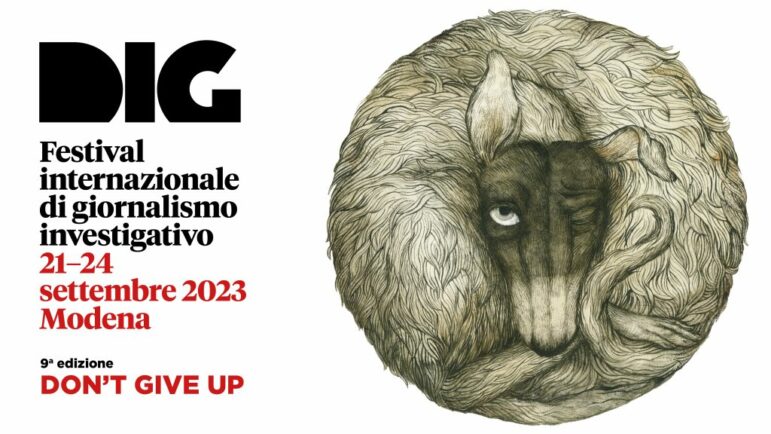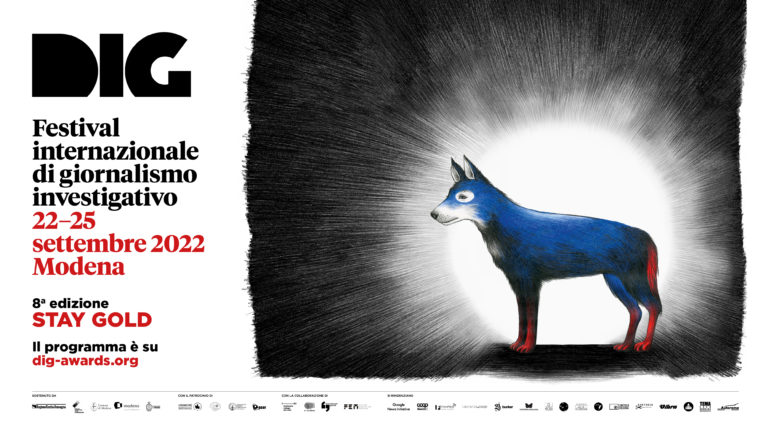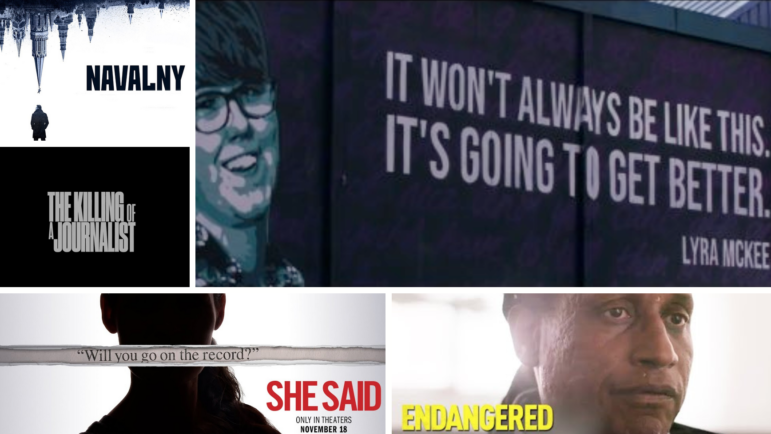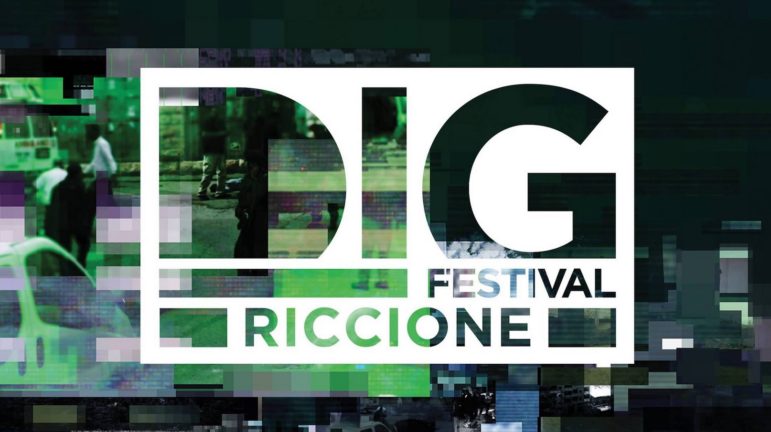

From Kyiv to the Congo: DIG Festival Honors Top Investigative Documentaries
 When the DIG Festival first launched in 2016 it focused largely on Italian documentaries firmly anchored in quality investigative journalism. Just three years and four festivals later, it has grown into an international destination for some of the world’s best investigative documentary filmmaking.
When the DIG Festival first launched in 2016 it focused largely on Italian documentaries firmly anchored in quality investigative journalism. Just three years and four festivals later, it has grown into an international destination for some of the world’s best investigative documentary filmmaking.
Held this year in Riccione, Italy, from June 1 to 3, the international jury handed out seven awards, taking viewers from Kyiv to the Congo. Chaired by Jeremy Scahill, a founding editor of The Intercept, the panel also included Claudine Blais from Canada’s Enquete; Morten Warmedal from Norway’s NRK; Marco Nassivera from Europe’s Arte; Galia Bador from the Tel Aviv-based DocAviv; Al Jazeera’s Juliana Ruhfus; Sky Italia’s Andrea Scrosati; Nils Hanson from Swedish Television; Pia Thordsen from Danish Television; Italian journalist Alberto Nerazzini; and La EFFE TV’s Riccardo Chiattelli.
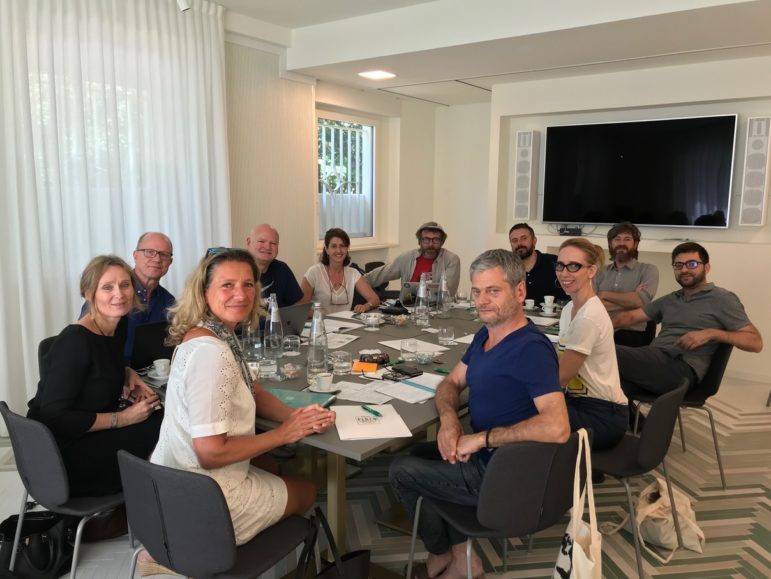
Jury Panel: From left to right, Juliana Ruhfus, Pia Thordsen, Nils Hanson, Morten Warmedal, Claudine Blais, Alberto Nerazzini, Jeremy Scahill, Matteo Scanni (DIG director), Riccardo Chiattelli, Galia Bador and Marco Nassivera
Hosted by GIJN-member Documentari Inchieste Giornalismi (DIG, or in English, Investigative Journalism Documentaries), a nonprofit which helps connect investigative reporters with European broadcasters, this year’s festival brought together documentary filmmakers from around the world, along with hundreds of students who attended workshops and the awards ceremony. More than 2,000 others attended the three days of talks and screenings as well as various musical and theater performances.
Here is what the jury had to say about this year’s award-winners.
Best Investigative Long Film
Killing Pavel
Anna Babinets, Elena Loginova, Vlad Lavrov, Dmytro Gnap and Matt Sarnecki
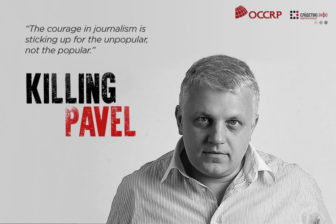 Journalists around the world are being killed in record numbers and impunity in these cases is rampant. In July 2016, award-winning reporter Pavel Sheremet was assassinated in a car bomb in broad daylight in Kyiv, Ukraine. Sheremet was a fierce critic not only of powerful Ukrainian officials, but also those from Russia and his native Belarus.
Journalists around the world are being killed in record numbers and impunity in these cases is rampant. In July 2016, award-winning reporter Pavel Sheremet was assassinated in a car bomb in broad daylight in Kyiv, Ukraine. Sheremet was a fierce critic not only of powerful Ukrainian officials, but also those from Russia and his native Belarus.
The filmmaking team behind “Killing Pavel” – which attempted to shed light on the murder – exhibited great bravery and this resulted in an intense cinematic movie that stands out for its innovative use of CCTV cameras and its unflinching hard-nosed journalism. The jury stands with all journalists under attack and embraces the spirit that an attack on one is an attack on all.
Best Reportage Long Film
Kompromat
Tristan Waleckx and Guillaume Beaufils
We live in a moment in history where the very existence of privacy is being challenged every day, not just by powerful government agencies, but also through our voluntary use of social media and the internet. Authoritarian rulers have begun adopting Donald Trump’s mantra of “fake news” to dismiss factual reporting on their crimes and corruption. In this landscape, the use of blackmail and bribery can change history in a moment. Is there really a video of Russian sex workers giving Donald Trump a “golden shower” in a Moscow hotel? We may never know. The documentary “Kompromat,” a Russian term for using compromising information as a weapon, sheds light on the old KGB tactic of silencing journalists, politicians, diplomats and political opponents through entrapment. This eye-opening film employs a skillful narrative to reveal the human consequences of this destructive practice.
Best Investigative Medium Film
Silent Death on a Syrian Journey
Mouhssine Ennaimi
For the second year in a row, this category produced the longest debate among the jury. All three finalists produced excellent and important films that deserve a wide audience. But one film stood out for its compassion and powerful storytelling. We have all seen the horrifying images of the war in Syria and the mass exodus of refugees. But the film “Silent Death on a Syrian Journey” forces us to confront one of the horrifying realities of the condition of these victims of war: the selling of their organs in order to survive. The film tells the story of one man who believed he was saving his family by selling one of his kidneys for a few thousand dollars. He and another character in the film were deceived by the organ smugglers, who effectively stole their organs and left them in the same poverty they sought to escape. At times difficult to watch, this film forces us to confront the inhumanity that has defined the treatment of some of the most vulnerable on earth.
Best Reportage Medium Film
Iraq: Dying for Mosul
Bernard Genier
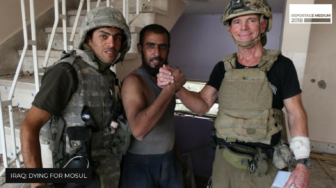 “You cannot get closer to the hell of war.” That was how one juror described the winning film in this category. “Iraq: Dying for Mosul” is an intense film that takes viewers to the front lines in one of the major battles against ISIS. Its main protagonist is a complicated religious fanatic from the US who risks his life, and those of his Burmese paramilitaries, to save people who would almost certainly be killed if they didn’t show up. As a viewer you find yourself rooting for this strange band of paramilitary medics, even as you question the motivation of the hero. The jury was impressed with the skill and bravery of the filmmaker.
“You cannot get closer to the hell of war.” That was how one juror described the winning film in this category. “Iraq: Dying for Mosul” is an intense film that takes viewers to the front lines in one of the major battles against ISIS. Its main protagonist is a complicated religious fanatic from the US who risks his life, and those of his Burmese paramilitaries, to save people who would almost certainly be killed if they didn’t show up. As a viewer you find yourself rooting for this strange band of paramilitary medics, even as you question the motivation of the hero. The jury was impressed with the skill and bravery of the filmmaker.
Best Short Film
Doping: Alex Schwazer’s Mystery
Emanuele Piano
Few scandals captivate global audiences more than allegations of doping and innovative ways of cheating the international system. The case of race walker Alex Schwazer remains the subject of much debate. A gold medalist at Beijing in 2008, Schwazer was twice convicted of doping. The film “Doping: Alex Schwazer’s Mystery” seeks to tell a complex story in a very short amount of time. It represents an admirable attempt to give an overview of the controversy and focuses on the key questions that eventually will require answers.
Best Master Film
This is Congo
Daniel McCabe
The jury was almost unanimous in deciding this award. The winning film combines the best of war reporting with a remarkably cinematic style for a documentary. “This is Congo” is a brave, bold and thrilling work of journalism which takes us all inside one of the most bloody and continuous civil wars in the world, with characters which seem almost too cinematic to be real. But they are. The storytelling in the film is at times chaotic, but it somehow works perfectly because the truth in Congo is itself chaotic.
The Pitch:
Goldfish and Dogfish
Gianluca Loffredo and Sandro Di Domenico
It is not easy to stand in a room full of international filmmakers and give a pitch in your non-native language. The jury expresses its gratitude to all of the contestants for subjecting themselves to a difficult process. There were two projects that stood out to us: “Never Whistle Alone” and “Goldfish and Dogfish.” The first is a creative, innovative and challenging film that confronts conventional documentary norms. The second is a film with great potential to confront a pattern of deadly mistakes by a powerful shipping company and perhaps bring some justice to its victims. We believe both of these films should be made.
In the end, the jury came to the conclusion that the project that would most benefit from this prize and the advice and counsel of experienced filmmakers is “Goldfish and Dogfish.” In awarding this prize, the jury encourages the filmmakers to broaden the focus of the film, to aim higher in their investigation and to take seriously the burden of creating a compelling investigation. It is in this spirit of encouragement and honest, critical support, that the jury is honored to present this €15,000 prize.
Two special mentions were also awarded, one for “The Cost of Cotton” by Sandrine Rigaudand and another for “Bloody Money” by Sasha Biazzo.
 Claudine Blais recently became editor in chief of the Canadian investigative program Enquête, where she was executive producer since 2010. Previously she produced reports for several public affairs programs on Radio-Canada. She has won several awards in Canada, including the Prix Judith-Jasmin, the Gemini Awards and the Merrill Lynch Award.
Claudine Blais recently became editor in chief of the Canadian investigative program Enquête, where she was executive producer since 2010. Previously she produced reports for several public affairs programs on Radio-Canada. She has won several awards in Canada, including the Prix Judith-Jasmin, the Gemini Awards and the Merrill Lynch Award.






